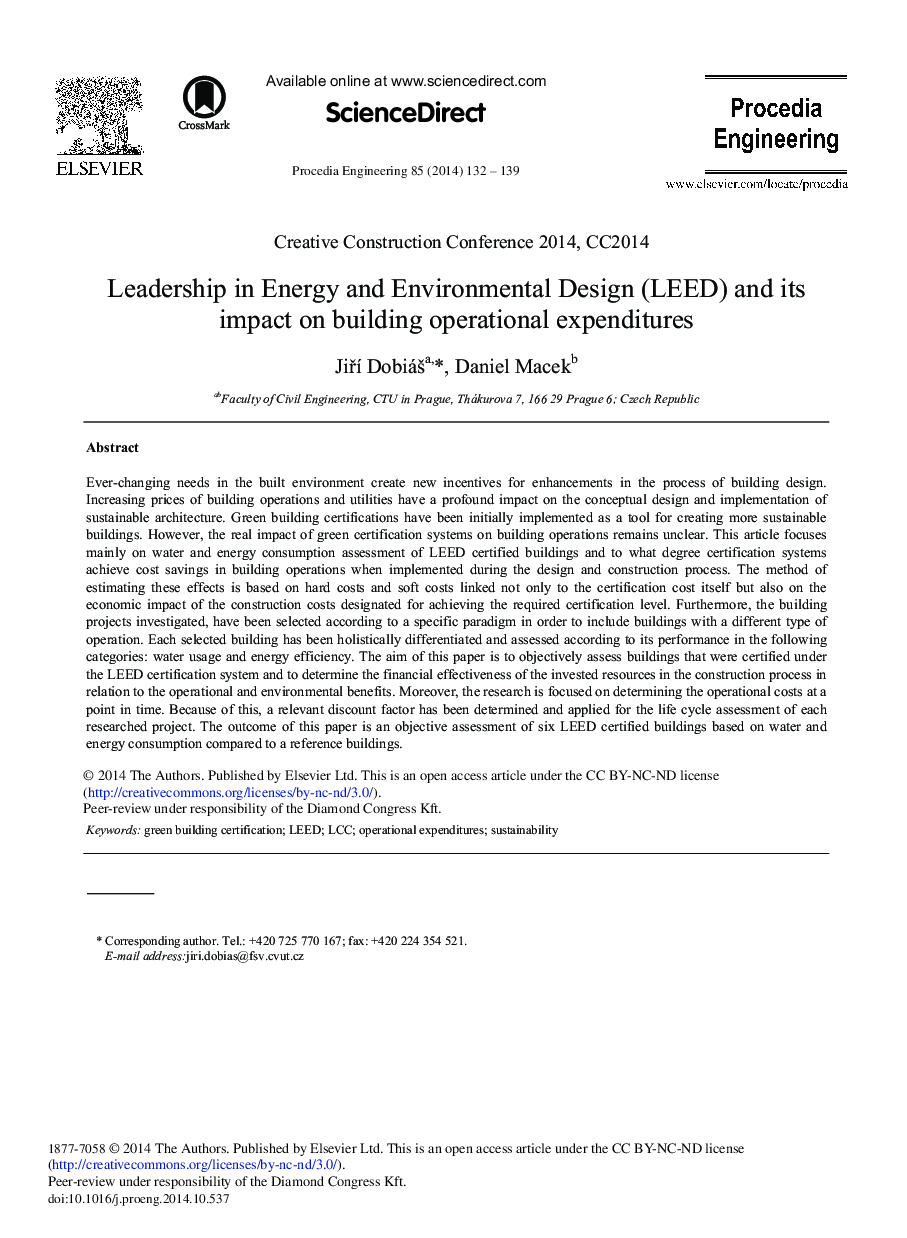| Article ID | Journal | Published Year | Pages | File Type |
|---|---|---|---|---|
| 858440 | Procedia Engineering | 2014 | 8 Pages |
Ever-changing needs in the built environment create new incentives for enhancements in the process of building design. Increasing prices of building operations and utilities have a profound impact on the conceptual design and implementation of sustainable architecture. Green building certifications have been initially implemented as a tool for creating more sustainable buildings. However, the real impact of green certification systems on building operations remains unclear. This article focuses mainly on water and energy consumption assessment of LEED certified buildings and to what degree certification systems achieve cost savings in building operations when implemented during the design and construction process. The method of estimating these effects is based on hard costs and soft costs linked not only to the certification cost itself but also on the economic impact of the construction costs designated for achieving the required certification level. Furthermore, the building projects investigated, have been selected according to a specific paradigm in order to include buildings with a different type of operation. Each selected building has been holistically differentiated and assessed according to its performance in the following categories: water usage and energy efficiency. The aim of this paper is to objectively assess buildings that were certified under the LEED certification system and to determine the financial effectiveness of the invested resources in the construction process in relation to the operational and environmental benefits. Moreover, the research is focused on determining the operational costs at a point in time. Because of this, a relevant discount factor has been determined and applied for the life cycle assessment of each researched project. The outcome of this paper is an objective assessment of six LEED certified buildings based on water and energy consumption compared to a reference buildings.
